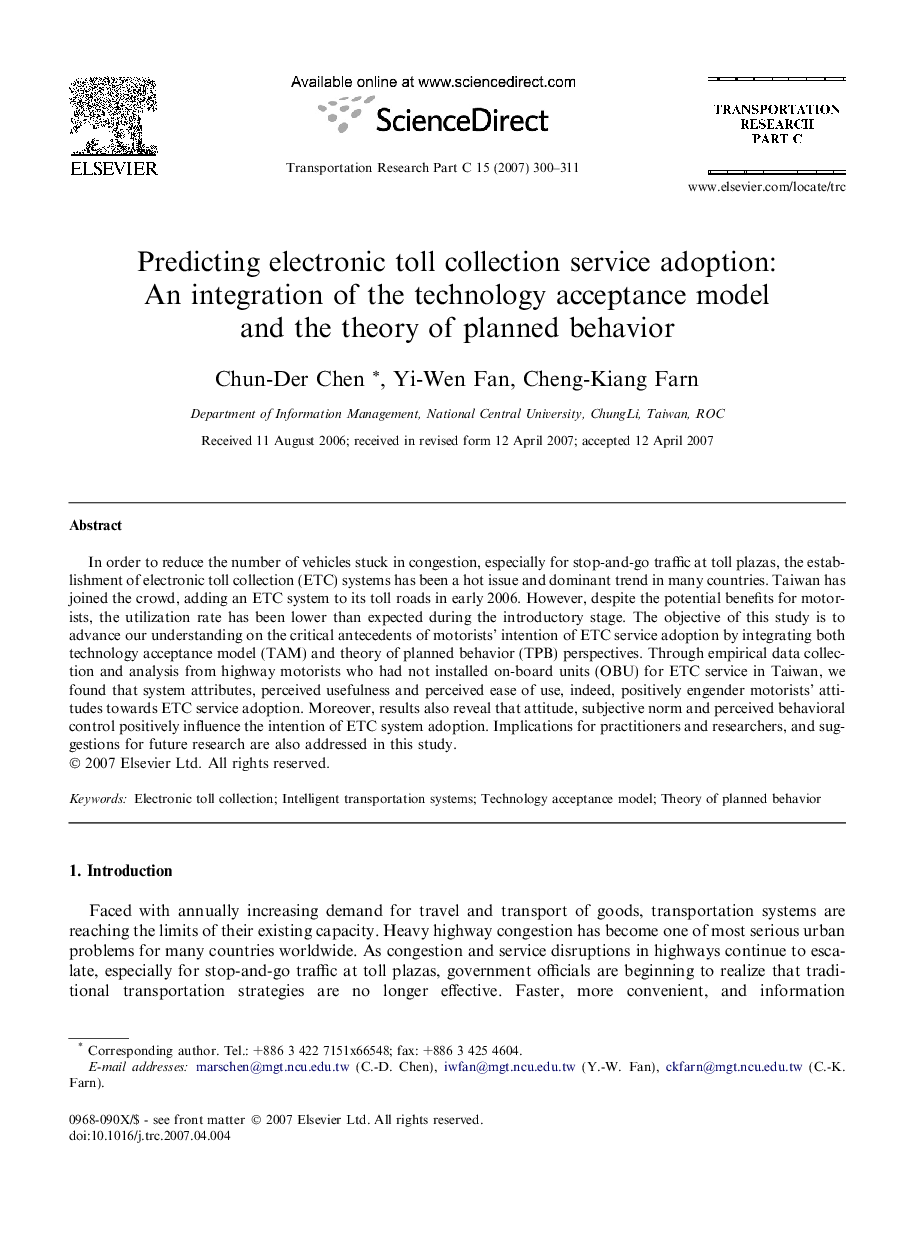| Article ID | Journal | Published Year | Pages | File Type |
|---|---|---|---|---|
| 525400 | Transportation Research Part C: Emerging Technologies | 2007 | 12 Pages |
In order to reduce the number of vehicles stuck in congestion, especially for stop-and-go traffic at toll plazas, the establishment of electronic toll collection (ETC) systems has been a hot issue and dominant trend in many countries. Taiwan has joined the crowd, adding an ETC system to its toll roads in early 2006. However, despite the potential benefits for motorists, the utilization rate has been lower than expected during the introductory stage. The objective of this study is to advance our understanding on the critical antecedents of motorists’ intention of ETC service adoption by integrating both technology acceptance model (TAM) and theory of planned behavior (TPB) perspectives. Through empirical data collection and analysis from highway motorists who had not installed on-board units (OBU) for ETC service in Taiwan, we found that system attributes, perceived usefulness and perceived ease of use, indeed, positively engender motorists’ attitudes towards ETC service adoption. Moreover, results also reveal that attitude, subjective norm and perceived behavioral control positively influence the intention of ETC system adoption. Implications for practitioners and researchers, and suggestions for future research are also addressed in this study.
